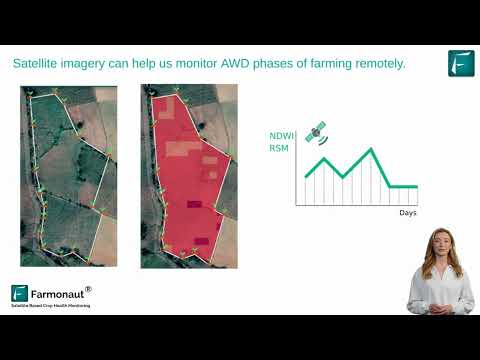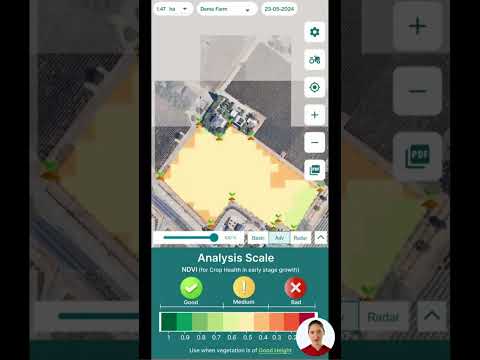New Mexico Agriculture Alert: Protecting Ecosystems from Unsolicited Foreign Seed Packages
“New Mexico’s agriculture department has intercepted foreign seed packages from at least 2 states, posing risks to local ecosystems.”
We, at the New Mexico Department of Agriculture (NMDA), are facing an unprecedented challenge that threatens the very foundation of our state’s agricultural heritage and ecological balance. Unsolicited foreign seed packages have been arriving across New Mexico and neighboring Texas, raising alarm bells throughout our farming communities and environmental protection agencies. This blog post aims to shed light on this pressing issue, outline the risks involved, and provide guidance on how we can collectively safeguard our precious ecosystems.
The Unsolicited Seed Package Phenomenon
In recent months, residents of New Mexico and Texas have reported receiving mysterious packages containing seeds from foreign countries. These unrequested shipments have triggered a state-wide alert, as they pose significant risks to our agricultural sector and natural environments. The NMDA, in collaboration with federal agencies, has swiftly responded to this threat, implementing rigorous measures to intercept and analyze these potentially harmful seeds.

Understanding the Risks
The arrival of these foreign seeds presents a multifaceted threat to New Mexico’s agriculture and environment:
- Invasive Species Introduction: Unknown seeds could potentially introduce invasive plant species that may outcompete native flora, disrupt local ecosystems, and harm biodiversity.
- Plant Disease Transmission: These seeds might carry plant pathogens capable of spreading diseases to our crops and native plants, potentially devastating entire agricultural regions.
- Agricultural Production Impact: The introduction of harmful plants or pathogens could significantly affect crop yields, leading to economic losses for our farming communities.
- Ecological Imbalance: New invasive species could alter habitat structures, affecting not only plants but also the wildlife that depends on our native ecosystems.
Legal Implications
It’s crucial to understand that these unsolicited seed shipments are not just a nuisance; they represent a serious violation of both state and federal laws. The unauthorized importation of plant materials bypasses critical phytosanitary regulations designed to protect our agricultural sector and natural environments. Such actions can result in severe penalties, reflecting the gravity of the potential consequences.
Immediate Actions for Recipients
If you receive unexpected seeds in the mail, the NMDA urges you to take the following steps immediately:
- Do not open the seed packet or plant the seeds.
- Retain the packaging and mailing label.
- Contact the NMDA or your local agricultural extension office for guidance on proper handling and disposal.
- Do not dispose of the seeds in regular trash or compost, as this could lead to unintended germination.
“Unsolicited seed shipments violate both state and federal laws, potentially introducing invasive species to New Mexico’s agricultural lands.”
NMDA’s Response and Ecosystem Protection Measures
In response to this threat, the New Mexico Department of Agriculture has implemented a comprehensive strategy to protect our ecosystems and agricultural sectors:
- Interception and Quarantine: We’ve established protocols to intercept suspicious packages and securely quarantine any foreign plant materials.
- Laboratory Testing: Our state-of-the-art laboratory facilities are conducting thorough analyses of intercepted seeds to identify potential threats.
- Public Awareness Campaigns: We’re actively educating the public about the risks associated with unsolicited seeds and proper reporting procedures.
- Collaboration with Federal Agencies: The NMDA is working closely with USDA and other federal partners to coordinate response efforts and share critical information.
Farming Community Concerns
The arrival of these foreign seeds has understandably raised significant concerns within New Mexico’s farming community. Our agricultural producers are the backbone of our state’s economy and stewards of our land. Their worries include:
- Potential crop contamination
- Increased pest management challenges
- Economic losses from reduced yields or market access restrictions
- Long-term impacts on soil health and farm sustainability
We at the NMDA are committed to addressing these concerns through proactive measures and ongoing communication with our farming stakeholders.
Invasive Species Prevention: A Collective Effort
Protecting New Mexico’s diverse ecosystems from invasive species requires a collective effort. Here’s how different sectors can contribute to this crucial endeavor:
- Farmers and Ranchers: Implement strict biosecurity measures on your properties and report any suspicious plant growth or pest activity.
- Gardeners and Horticulturists: Choose native or well-vetted plant species for your gardens and be vigilant about plant sourcing.
- General Public: Learn to identify common invasive species in New Mexico and report sightings to local authorities.
- Educational Institutions: Incorporate invasive species awareness into environmental and agricultural curricula.

Leveraging Technology in Agricultural Protection
In our fight against potential invasive species and plant diseases, advanced agricultural technologies play a crucial role. Platforms like Farmonaut offer innovative solutions that can aid in early detection and monitoring of crop health issues. While not directly involved in regulatory efforts, such technologies provide valuable tools for farmers and agricultural professionals to maintain vigilant oversight of their lands.
Farmonaut’s satellite-based crop health monitoring and AI-driven advisory systems can help farmers quickly identify unusual plant growth patterns or health issues that might indicate the presence of invasive species or diseases. This early warning system is invaluable in our collective efforts to protect New Mexico’s agricultural lands.
For those interested in leveraging satellite data for agricultural purposes, Farmonaut offers comprehensive API services and detailed API Developer Docs.
Invasive Species Risk Assessment Matrix
| Seed Type | Origin Country | Potential Invasive Species | Ecological Impact | Economic Impact | Detection Method | Recommended Action |
|---|---|---|---|---|---|---|
| Unidentified Grass Seeds | Eastern Asia | Cogongrass (Imperata cylindrica) | High – Outcompetes native species | High – Reduces forage for livestock | Microscopic Analysis | Immediate Quarantine and Destruction |
| Woody Plant Seeds | South America | Brazilian Pepper Tree (Schinus terebinthifolius) | Medium – Alters habitat structure | Medium – Impacts native plant nurseries | DNA Barcoding | Containment and Further Study |
| Aquatic Plant Seeds | Southeast Asia | Water Hyacinth (Eichhornia crassipes) | High – Chokes waterways | High – Impedes water flow and navigation | Visual Identification | Immediate Destruction and Water Body Monitoring |
| Vine Seeds | Eastern Europe | Kudzu (Pueraria montana) | High – Smothers native vegetation | High – Damages infrastructure and crops | Genetic Analysis | Eradication and Long-term Monitoring |
| Flowering Plant Seeds | North Africa | Yellow Starthistle (Centaurea solstitialis) | Medium – Reduces biodiversity in grasslands | Medium – Toxic to horses, reduces grazing land | Seed Morphology Analysis | Controlled Disposal and Habitat Restoration |
The Role of Technology in Modern Agriculture
As we confront challenges like unsolicited foreign seeds, it’s clear that modern agricultural practices must evolve. Technologies that offer real-time monitoring and data-driven insights are becoming increasingly crucial. Farmonaut’s mobile applications provide farmers with powerful tools to track crop health and detect anomalies that could indicate the presence of invasive species or diseases.
Community Engagement and Education
Protecting New Mexico’s agricultural heritage and ecosystems is a responsibility we all share. The NMDA is committed to ongoing community education and engagement initiatives, including:
- Workshops on identifying and reporting suspicious plant materials
- Partnerships with local schools to promote agricultural and environmental awareness
- Regular updates on invasive species threats and prevention strategies
- Collaboration with community groups for local ecosystem monitoring efforts
Looking Ahead: Strengthening Our Agricultural Defenses
As we continue to address the immediate threat of unsolicited foreign seeds, we must also look to the future. Strengthening New Mexico’s agricultural defenses requires a multi-faceted approach:
- Enhanced Border Inspections: Working with federal partners to improve screening of incoming plant materials.
- Advanced Detection Technologies: Investing in cutting-edge tools for rapid identification of potential threats.
- Sustainable Farming Practices: Promoting farming methods that enhance ecosystem resilience against invasive species.
- Climate Change Considerations: Adapting our strategies to account for shifting environmental conditions that may favor new invasive species.
Conclusion: A Call to Action
The threat posed by unsolicited foreign seed packages to New Mexico’s agriculture and ecosystems is real and immediate. However, through vigilance, cooperation, and the application of advanced agricultural technologies, we can protect our state’s natural heritage. We call on all New Mexicans to remain alert, report suspicious packages, and actively participate in our collective efforts to safeguard our lands.
Together, we can ensure that New Mexico’s agricultural sector remains strong, resilient, and free from the threats of invasive species and plant diseases. Our actions today will determine the health and productivity of our ecosystems for generations to come.
FAQs
- Q: What should I do if I receive unsolicited seeds in the mail?
A: Do not open the package or plant the seeds. Keep the packaging intact and contact the NMDA or your local agricultural extension office immediately for guidance. - Q: Are these seed packages illegal?
A: Yes, unsolicited seed shipments violate both state and federal laws, as they bypass important agricultural safety regulations. - Q: How can I help prevent the spread of invasive species?
A: Be vigilant about plant materials you bring onto your property, learn to identify common invasive species, and report any suspicious plant growth to local authorities. - Q: What are the risks of planting unknown seeds?
A: Planting unknown seeds could introduce invasive species or plant diseases that can harm local ecosystems, disrupt agricultural production, and cause significant economic damage. - Q: How is technology helping in the fight against invasive species?
A: Advanced technologies like satellite imaging and AI-driven crop monitoring systems help in early detection of unusual plant growth patterns or health issues that might indicate the presence of invasive species or diseases.
Earn With Farmonaut: Affiliate Program
Earn 20% recurring commission with Farmonaut’s affiliate program by sharing your promo code and helping farmers save 10%. Onboard 10 Elite farmers monthly to earn a minimum of $148,000 annually—start now and grow your income!
Farmonaut Subscriptions







